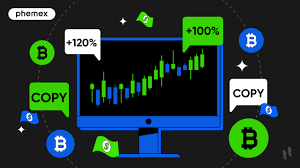
Understanding Forex Trading: A Beginner’s Guide
AlexJones
- 0
- 298
What is Forex Trading?
Forex trading, also known as foreign exchange trading or currency trading, involves the buying and selling of currencies on the foreign exchange https://utobrokers.com/
market with the aim of making a profit. Unlike stock markets, the forex market operates 24 hours a day, five days a week, making it accessible to traders around the globe.
How Forex Trading Works
The forex market operates on a decentralized basis, meaning that it does not have a centralized exchange. Instead, trading occurs through a network of banks, financial institutions, and individual traders. Currencies are traded in pairs, such as EUR/USD (Euro/US Dollar) or GBP/JPY (British Pound/Japanese Yen). When you trade currencies, you are essentially speculating on the price movement of one currency against another.
Key Terms in Forex Trading
- Currency Pair: A quotation of two different currencies, with the first currency being the base currency and the second being the quote currency.
- Pips: The smallest price move that a given exchange rate can make, typically the fourth decimal place (0.0001) in most currency pairs.
- Leverage: A tool that allows traders to control larger positions with a smaller amount of capital. For example, with 100:1 leverage, you can control a $100,000 position with only $1,000.
- Spread: The difference between the bid price (the price at which you can sell) and the ask price (the price at which you can buy).
Advantages of Forex Trading
- Liquidity: The forex market is the most liquid financial market in the world, with trillions of dollars traded daily. This high liquidity allows for faster transactions and less price manipulation.
- Accessibility: With online trading platforms, anyone can access the forex market with a minimal investment, often starting with just a few hundred dollars.
- Flexibility: Forex trading can be done at any time of the day or night, allowing traders to choose their own schedules.
- Diverse Strategies: Traders can employ various strategies based on technical analysis, fundamental analysis, or a combination of both.
Risks of Forex Trading
While there are many advantages, forex trading also carries risks, including:
- High Volatility: Currency prices can fluctuate significantly within a short period, leading to potential losses.
- Leverage Risks: While leverage can amplify profits, it can also magnify losses, potentially resulting in losing more than the initial investment.
- Market Influences: Economic news, political events, and changes in interest rates can all affect currency prices unpredictably.
Getting Started with Forex Trading
- Educate Yourself: Before diving in, take the time to learn the basics of forex trading, including market analysis techniques and trading strategies.
- Choose a Reliable Broker: Select a reputable forex broker that offers a user-friendly platform, competitive spreads, and strong customer support.
- Open a Demo Account: Many brokers offer demo accounts where you can practice trading with virtual money. This helps you understand the trading platform and test your strategies without financial risk.
- Develop a Trading Plan: A solid trading plan includes your risk tolerance, trading goals, and a strategy for entering and exiting trades.
- Start Trading: Once you feel comfortable, you can start trading with real money. Begin with small amounts to minimize risk as you gain experience.
Conclusion
Forex trading can be a rewarding yet challenging endeavor. Understanding the mechanics, risks, and strategies involved is essential for success. With proper education, practice, and a disciplined approach, anyone can navigate the complexities of the forex market and potentially profit from it.